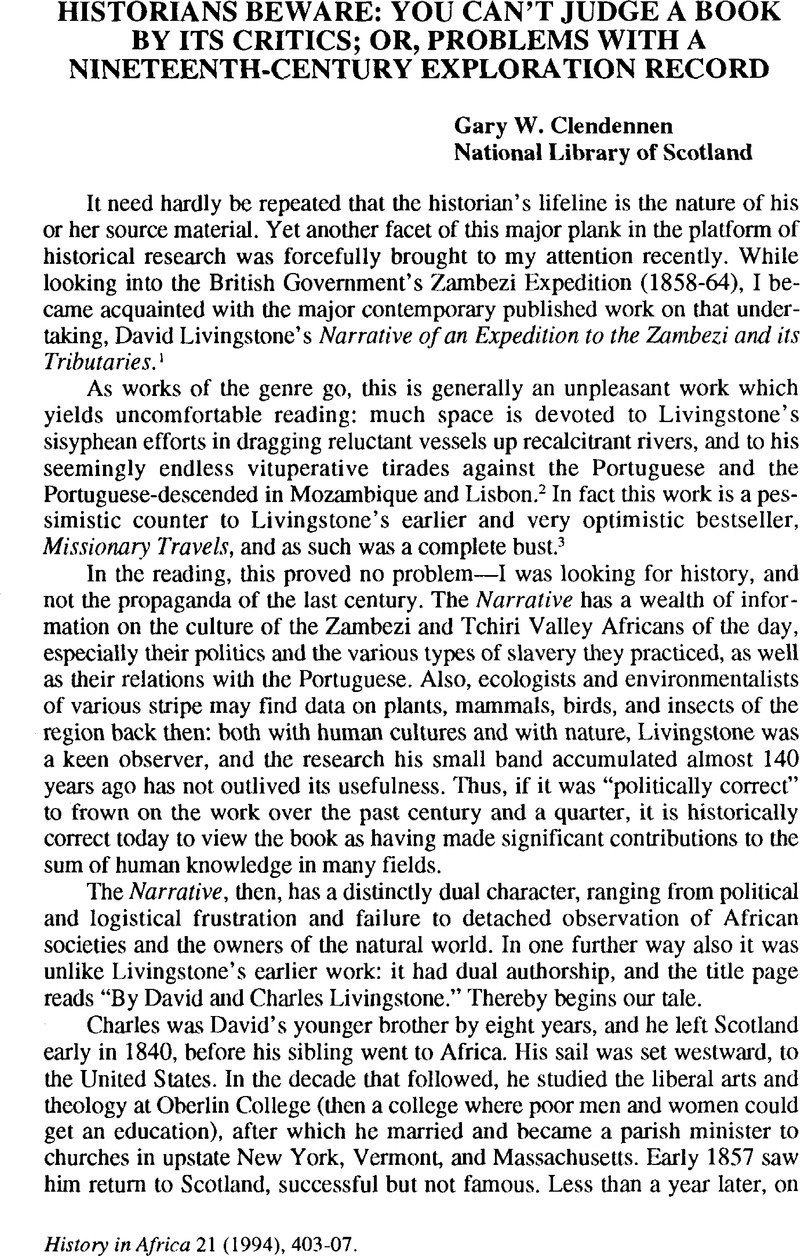No CrossRef data available.
Article contents
Historians Beware: You Can't Judge a Book by its Critics; Or, Problems with a Nineteenth-Century Exploration Record
Published online by Cambridge University Press: 13 May 2014
Abstract

- Type
- Reports
- Information
- Copyright
- Copyright © African Studies Association 1994
References
Notes
1. London, (1865).
2. Livingstone was clearly introverted, and frequently dealt with those he felt to be shallow and unprincipled by writing lengthy polemics in his own defense, often confined to his journals and private letters.
3. Missionary Travels and Researches in South Africa (London, 1857).Google Scholar
4. David received nothing from the very successful sales of Missionary Travels in North America.
5. Wallis, J. P. R., ed., The Zambesi Journal of James Stewart, 1862-1863 (London, 1952), xxiv, 237.Google Scholar Wallis gives no hint of page size, type of script, etc., nor of his reason for guessing “two hundred fifty” pages.
6. To the charge that Charles imposed his opinions on David, with regard to the dismissal of Thomas Baines from the Expedition, David wrote: “I am just the weakling to be so led.”
7. Chadwick, Owen, Mackenzie's Grave (London, 1959).Google Scholar
8. These were bequeathed to the college, along with other papers, in 1922 by Charles' son and heir, Charles Henry Livingstone. Charles Henry and both his sisters died childless.
9. Seaver, George, David Livingstone: His Life and Letters (London, 1957), 19.Google Scholar
10. Psychologists/psychiatrists and the like, particularly judgmental ones, will deplore this simplistic foray into “their field” by an “outsider,” and they may have a point. Nevertheless, in many cases, and in particular with regard to the Livingstones, this sketch will serve historians well.
11. Martelli, George, Livingstone's River: A History of the Zambezi Expedition, 1858-1864 (London, 1970), 237.Google Scholar
12. For details on additional contributors to the Narrative, see Clendennen, Gary, “Who Wrote Livingstone's Narrative?” The Bibliotheck 16 (1989 [1992]), 35–37.Google Scholar


